
The Bergen Knowledge Hub aims to:
- Be a catalyst for collaboration, for knowledge exchange, and for exchange of ideas.
- Engage research and scholarship with policymaking in Europe and in the Nordic and Baltic Regions, on behalf of Academia Europaea and in close collaboration with national academies of the region.
- Promote excellent research from and about the Nordic and Baltic Region, its surrounding seas and the Arctic with emphasis on marine and maritime research, sustainability and the Nordic social model, through scholarly workshops and public events.
- Demonstrate the importance of scientific scholarship and maximise engagement with our members, policymakers, private and public entities and the wider public.
- Stimulate scientists to accomplish stringent and unequivocal communication with decision makers, media, and the public.
The Academia Europaea is the pan-European Academy of Humanities, Letters, Law, and Sciences. The Academia was founded in 1988 as the functioning Europe-wide Academy that encompasses all fields of scholarly inquiry.

The Arctic Frontiers 2026 Conference in Tromsø marked a milestone this year, drawing more than 1,100 participants and over 120 international journalists—its highest attendance to date. Lise Øvreås, Academic Director of the Academia Europaea Bergen Hub, participated in in several panels at the conference. Themed “Turn of the Tide,” the event captured global attention as leaders, researchers, and policymakers converged to discuss a rapidly changing Arctic .
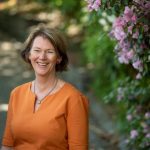
Academia Europaea Bergen Hub is welcoming Lise Øvreås as the new Academic Director from January 2026. She was president of The Norwegian Academy of Science and Letters from 2021 to 2024. She is also the newly elected President of EASAC (the European Academies Science Advisory Council). Her positions in EASAC and in AE-Bergen Hub will run parallel to her continued scientific research as an accomplished microbiologist.

Time has flown by, and as 2025 draws to a close, so too does my term as AE-Bergen Hub Director, Eystein Jansen writes in his Christmas greeting, as he wishes members and other friends of the hub a joyful festive season and an active year ahead. In his Christmas greeting, you’ll find out who will be his successor and lead the hub for the coming four years. He also writes about the current situation in academia, in science and in society. In a remarkably short time, the environment in which science is conducted has changed dramatically. Security considerations in research have moved to the forefront, and discussions about the dual-use potential of research outcomes have become routine, Eystein Jansen writes.
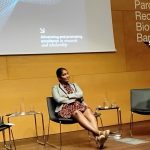
– How many of you think there is politics in science, moderator Scott Bremer asked the audience at the start of the YAE (Young Academy of Europe) panel event “Public trust in science and navigating political tensions” at Building Bridges Barcelona. Most of the audience raised their hands. Even as this very informal poll seemed to confirm the presence of politics in science, the rest of the panel focused on some of the more elusive disguises that politics can come in in science, such as barriers, taboos or self-censoring in the face of possible controversies.
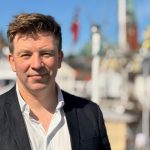
Norge som havnasjon kontrollerer enorme havområder, fem ganger større enn landområdene våre. – Her ligger grunnlaget for store deler av økonomien vår. Som nasjon har vi et fortrinn i å kunne manøvrere, operere, kontrollere, forvalte og forstå havet, sa AE-Bergens prosjektleder Ole Rasmus Øvretveit i sin innledning til debatten «Sikkerhet i havdypet – Trusler og konsekvenser» under Arendalsuka. Øvretveit ledet to debatter knyttet til norsk havpolitikk under Arendalsuka, med Havbyen Bergen som arrangør. Først ut «Sikkerhet i havdypet – Trusler og konsekvenser», deretter «Sikkerhet i havdypet – løsninger og forretningsmuligheter».

Our webinar, held on 17th July 2025, explored the questions: What is ‘One Health’, and what role does the sustainability of the environment and ecosystems play within it? ‘One Health’ is an integrated approach to optimising the health of humans, animals and ecosystems. It is supported and promoted by major bodies like the UN Environment Programme (UNEP), World Health Organization (WHO) and others. Yet, many argue that One Health has evolved to focus heavily on human health, without paying enough attention to the vital connection it has with the environment and ecosystems, on which all life depends.
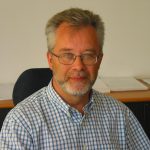
Professor Donald B. Dingwell, President Elect of Academia Europaea Following an intensive scrutiny process, the Board have accepted the recommendation of an independent search group who proposed Professor Donald B. Dingwell MAE for an approval by the Academia Europaea members.An E-ballot of all eligible members was held between 17 – 30 June 2025. By a clear majority, Professor Donald B. Dingwell MAE is elected as the President of the Academia Europaea. His term will officially start at the AGM of members on 14th October 2025. He will serve a term of three years and is then eligible to be re-elected for a second and final term of three years.
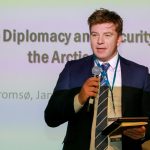
AE-Bergen project manager Ole Øvretveit participated in the Science Diplomacy Summit, hosted at Johns Hopkins University in Washington, DC, on April 14–15, 2025. The event brought together approximately 1400 participants from a wide range of countries and sectors, including academia, diplomacy, and Indigenous communities. Several nations, such as France, Poland, and Austria, were represented at a high diplomatic level, highlighting the global relevance of Arctic science and cooperation. Øvretveit contributed to the session “Polar Diplomacy: Arctic & Antarctic ” with a talk titled “Towards a New Era of Arctic Exceptionalism.”
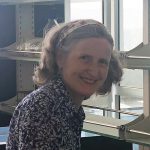
The recent SAPEA report “One Health governance in the EU” defines the “One Health”-concept as an integrated approach to optimize the health of humans, animals, and ecosystems, emphasizing their interdependence – how it’s all connected. Nominated by Academia Europaea Bergen, parasitologist Lucy Robertson participated in the working group for the report. In this interview, Lucy Robertson explains many aspects both of the “One Health”-concept and of how the SAPEA report can advance the One Health thinking.
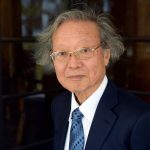
The Norwegian Academy of Science and Letters awarded the Abel Prize 2025 to Professor Masaki Kashiwara at Research Institute for Mathematical Sciences (RIMS), Kyoto University, Japan, and Kyoto University Institute for Advanced Study (KUIAS), Kyoto University, JapanMasaki Kashiwara has during more than half a century in mathematics opened the door to a new mathematical field. He has built bridges and created tools. He has proven astonishing theorems with methods no one had imagined. He has been a true mathematical visionary.
